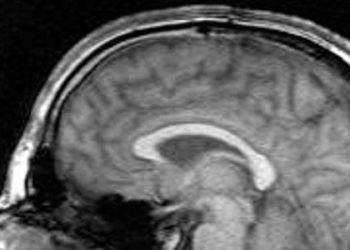Quick Take: Phase Ib/II Study of Pembrolizumab and Pegylated Interferon Alfa-2b in Advanced Melanoma
Programmed death-1 (PD-1) inhibitors have shown efficacy in the treatment of melanoma. Pre-existing CD8+ T-cell infiltrate and interferon (IFN) gene signature has been shown to correlate with response to PD-1 blockade. As such, the receipt of combination therapy with interferon (IFN) may enhance anti-tumor effects. In this open-label phase Ib/II trial, investigators treated 43 patients with stage IV PD-1-naïve melanoma with escalating doses of pegylated (PEG)-IFN combined with pembrolizumab (2mg/kg every 3 weeks, intravenously) until disease progression, in order to study the safety and objective response rate of the combination therapy. The phase II portion of the study examined the recommended phase II dose, and included a subset of 31 patients. Researchers found that no dose-limiting toxicity was found for any of the three PEG-IFN dose cohorts (1 µg/kg, 2 µg/kg, and 3 µg/kg). As such, 3 µg/kg of PEG-IFN was combined with 2 mg/kg of pembrolizumab for the phase II portion of the trial. Two patients with the highest PEG-IFN dose experienced grade 4 events and discontinued treatment, but still showed ongoing responses. In terms of efficacy, investigators assessed the objective response rate to be 60.5%, with 46.5% of patients exhibiting an ongoing response. Median time to response was 12 weeks, and median progression-free survival was 11 months (95% CI 6 months to not reached) in all patients. Progression-free survival rates at 6, 12, and 24 months were 64%, 46%, and 46%, respectively, in all patients. In non-responders, progression-free survival was 6 months (95% CI 2 months to 8 months). Results from this trial therefore suggest that the combination of pembrolizumab and PEG-IFN exhibits important clinical activity for PD-1 naïve melanoma, as the objective response rate of 60.5% was higher than the current disease control rate of 48.8%. It is important to note, however, that this study did not have a control group, and that this study had findings in contrast to another phase IB study testing pembrolizumab and PEG-IFN I melanoma. As such, further studies are needed to evaluate the safety and efficacy of this combination treatment.
Click to read this study in JCO
Image: PD
©2018 2 Minute Medicine, Inc. All rights reserved. No works may be reproduced without expressed written consent from 2 Minute Medicine, Inc. Inquire about licensing here. No article should be construed as medical advice and is not intended as such by the authors or by 2 Minute Medicine, Inc.







